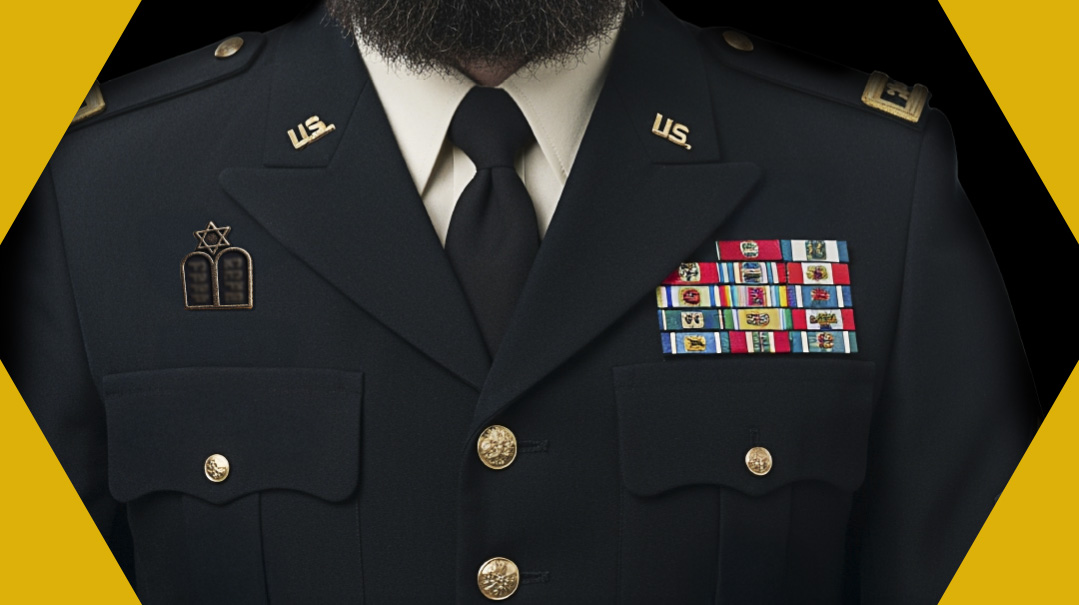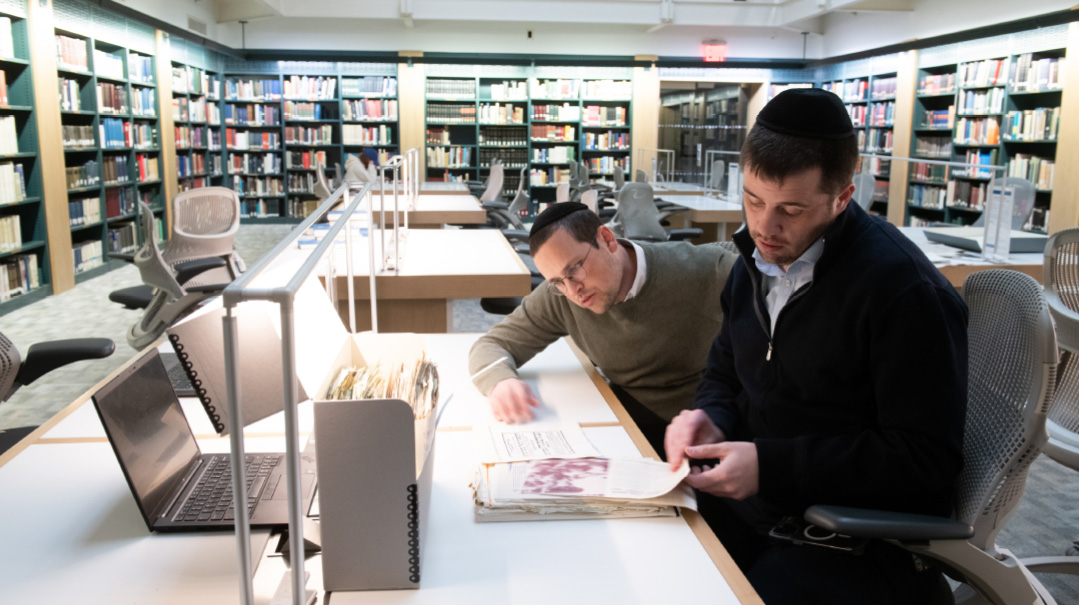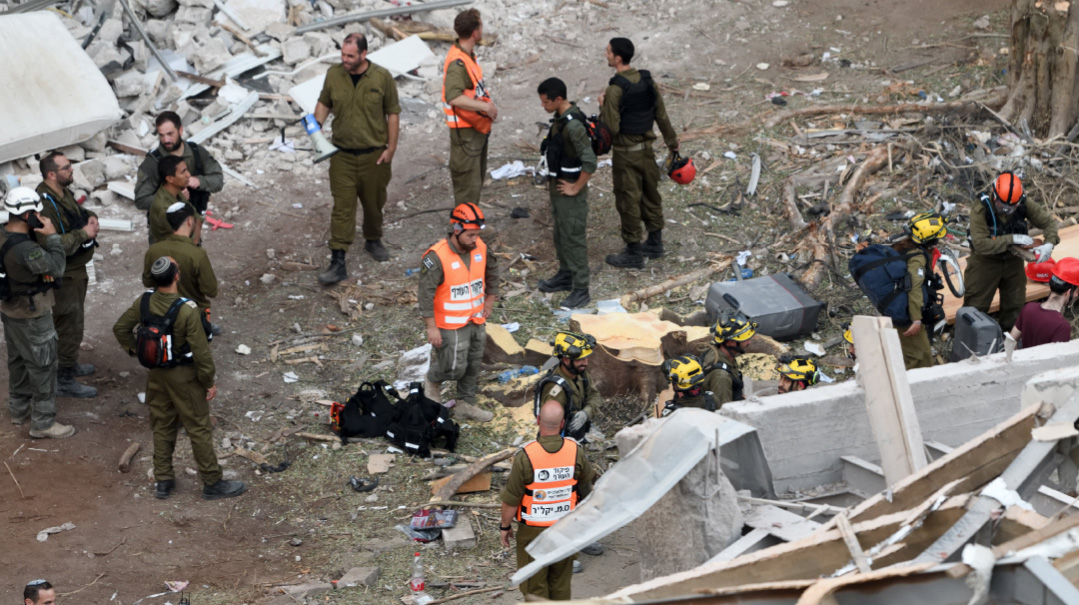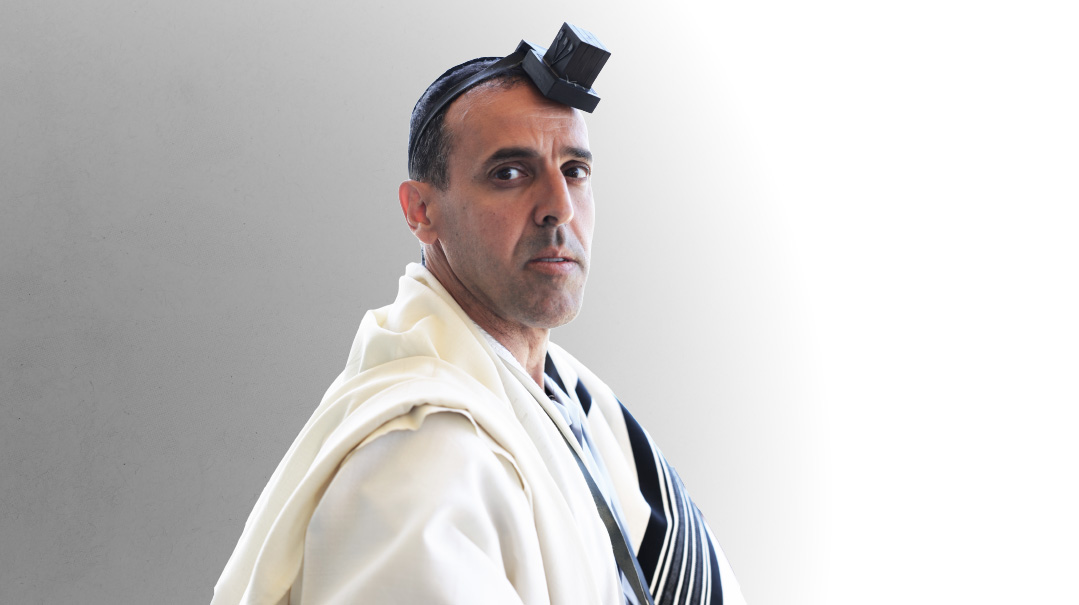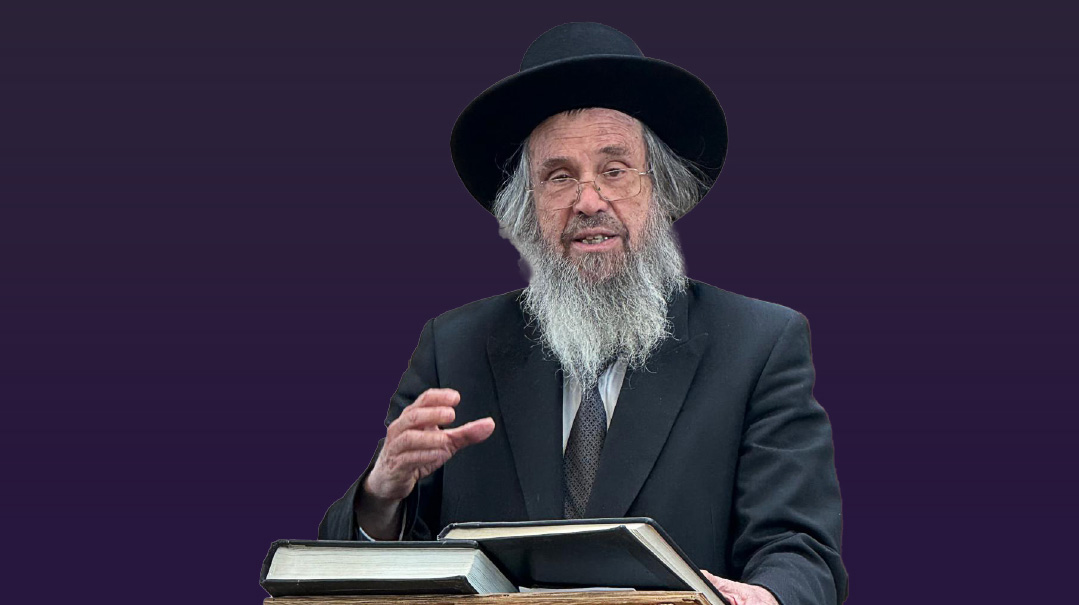Tending Greatness
| March 31, 2015What it’s like to practice medicine, when your patient is the gadol hador
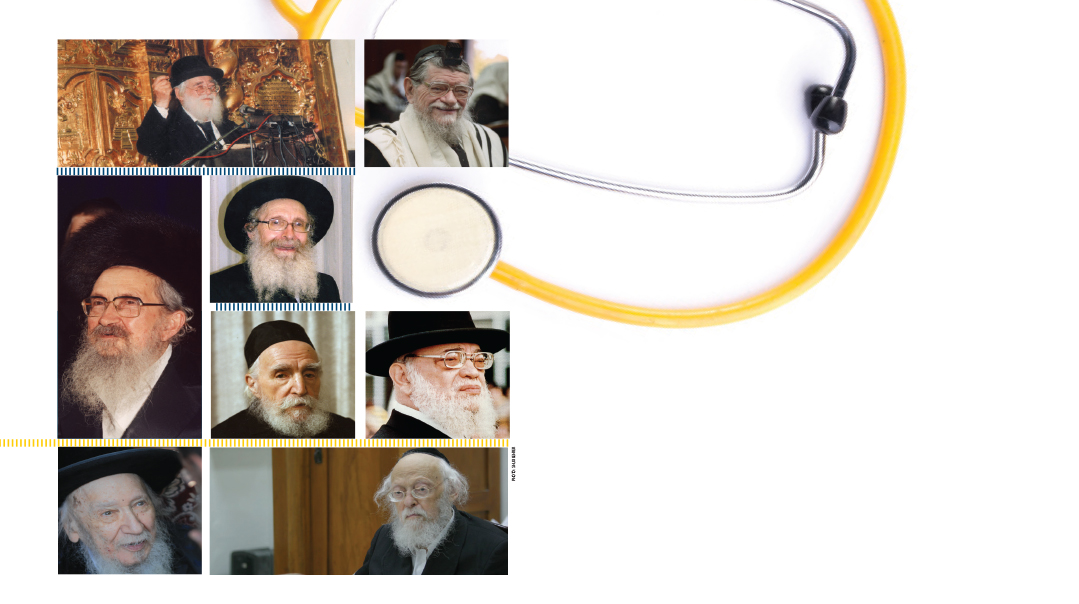
When Dr. Alan Weiss, a cardiologist from St. Louis, Missouri, was first introduced to Rav Elazar Menachem Man Shach over 20 years ago, he was a recent baal teshuvah who knew nothing about the gadol until a friend offered to bring him for a brachah.
“I walked in and thought, ‘This man is in his 90s, how can he remember anything?’ ” recalls Dr. Weiss.
Rav Shach looked at him with a twinkle in his eye and said, “Maybe the doctor has something for my memory?”
That exchange sparked a decade-long relationship between the gadol and the doctor, replete with countless demonstrations of warmth and attention that Dr. Weiss still treasures.
But Dr. Weiss is far from the only physician to have nurtured a strong bond with some of our nation’s greatest leaders. There’s a small cadre of doctors who consider it their greatest honor to be the trusted practitioners for eminent gedolim, navigating a fine balance between their instinctive awe and professional obligations toward these extraordinary patients.
From Up Close
For Dr. Weiss, the defining feature of the closeness he shared with Rav Shach was the ruach hakodesh he sensed emanating from this leader of the Torah world, as well as the fatherly love he was privileged to experience. Shortly after their first meeting, Dr. Weiss faced a malpractice case — the only one he’d ever had. The trial took place in St. Louis’s notoriously anti-doctor inner city and was scheduled for Tishah B’Av.
Advised by friendly colleagues to change the date of the trial, Dr. Weiss put in a call to Rav Shach’s Bnei Brak home for a brachah. The answer came back: “Tell Dr. Weiss, ‘You can change the date if you want to, but Hashem will not punish you.’ ”
He won the case.
A short while later, Dr. Weiss heard through the grapevine that the chief cardiologist of the university hospital that employed him was planning to break his contract, perhaps as a result of Dr. Weiss’s decision to become shomer Shabbos. He and his partner met to discuss the threat, when suddenly they were interrupted by a call from Israel.
The person on the other end of the line said, “I’ve been attending Rav Shach for 30 years, and I’ve never heard anything like this before. The Rosh Yeshivah just told me to call you immediately to find out what went wrong.”
Apparently pulling some Divine strings on Dr. Weiss’s behalf, Rav Shach stunned his listeners six weeks later when he announced in the midst of a learning session, “The Beis Din shel Maalah just decided the case in Dr. Weiss’s favor.”
In a stunning turn of events, the chief cardiologist was fired, and Dr. Weiss and his partner were awarded the contract instead.
The takeaway? “I once heard a Harvard professor say, ‘These people are just like we are,’ ” says Dr. Weiss. “But I’ve seen firsthand that they’re not. Their greatness is way beyond anything we can comprehend.”
This was the same message that Dr. Yoel (Julian) Jakobovits received from his father, Lord Immanuel Jakobovits, who served as chief rabbi of the United Kingdom from 1967 to 1991. Dr. Jakobovits had known Rav Yaakov Yitzchok Ruderman as venerated rosh yeshivah of Ner Israel. When he became Rav Ruderman’s personal doctor, the dynamic was dramatically altered. Suddenly the scholarly mentor had become a fragile patient. But at the same time, the fragile patient was a giant of mind and spirit.
“My father came to visit soon after I got to Baltimore and asked how I was adjusting. I expressed the tension I felt in being so personal with such a great person and seeing him so human. My father compared it to a Rembrandt. If you get too close, you see the cracks, but if you step back you’ll see the whole painting, and you get overwhelmed.”
Doctors who are shomrei Torah u’mitzvos walk the tightrope of this challenging mandate: examine, diagnose, prescribe — and still remember who it is you’re treating.
“Rav Ruderman was very clear that he wanted me to treat him like anybody else,” says Dr. Jakobovits. “That made it easier for me, because if you treat a rosh yeshivah like a VIP, with hands-off reverence, he won’t get very good medical care.”
“It’s a big achrayus,” says Brazilian-born Dr. Yitzchak Yehuda Adler, now of Jerusalem, who was privileged to treat many gedolim over the past 25 years, including Rav Beinish Finkel, Rav Shlomo Zalman Auerbach, Rav Nosson Tzvi Finkel, and Rav Eliezer Waldenberg, author of the sefer Tzitz Eliezer. He quips, “Any small thing I do wrong, I’m in big trouble.”
At the same time, the privileged position comes with an opportunity to view genuine greatness from an intimate vantage point, he says. “Every gadol I treated was a very big baal bitachon, was mekabel yissurim b’ahavah. They had tremendous shikul daas, even in life-threatening situations. Rav Nosson Tzvi would tell me, ‘If you need to send me to the hospital, send me. If you don’t, don’t.’ ”
“It’s a tremendous zechus to be in a gadol’s presence, and a chizuk for me that I could help them in some small way, to hopefully allow them to continue in their avodas hakodesh,” says Professor Michael Zelefsky, a radiation oncologist at Memorial Sloan Kettering Cancer Center in New York. “Their ability — because of their unflinching emunah in HaKadosh Baruch Hu — to accept the most terrible yissurim was an amazing thing to witness.”
“This Is My Name!”
Dr. Alan Weiss’s connection to the gedolim he treated left a deep impact on him, especially in the early years when he himself was still new to Torah and had little grasp of the power of Gemara. He recalls going to see Rav Shach once and finding the Rav lying in bed, white as a sheet, looking as weak as a rag doll. “He could barely speak, but he asked for a Gemara, which was put in front of his eyes. All of a sudden, the life returned to him, and he literally jumped out of bed. It was such a dramatic transition that everyone in the room was amazed. I remember thinking, ‘What is this book?’ ”
Dr. Zelefsky saw the same theme across the Atlantic, in Manhattan’s Sloan Kettering Cancer Center. “I had the zechus to be involved in the treatment of Rav Shmuel Berenbaum ztz”l,” he says. “It was an incredible inspiration for me to see someone who continued to exert tremendous ameilus baTorah despite the hardship of the treatment. All the radiotherapy treatments we gave him had to revolve around his ability to give shiur. Rav Shmuel was kulo Torah. For him, giving shiur, remaining in the beis medrash, was paramount.”
At one point, Rav Shmuel required a very sophisticated radiation treatment that necessitated a frame around his head, attached to his skull. The frame was very heavy and uncomfortable. As it was being set up, Dr. Zelefsky asked Rav Shmuel a complex sh’eilah on a sugya he was learning. Rav Shmuel came up with a chiddush on the sugya, which he was still explaining as the machinery was being attached.
“When the treatment was over,” relates Dr. Zelefsky, “he didn’t want to be removed from the table until he finished expounding on the chiddush. It didn’t matter if he was uncomfortable — he wanted to make sure that the chiddush was well understood.”
Although Rav Ruderman of Ner Israel was known for his phenomenal memory, in his later years, shares Dr. Jakobovits, “he often complained to me that his memory wasn’t as good as it had been. I was once walking with him in front of the beis medrash, and he asked what I was learning. Though the masechta I was learning was not in the regular yeshivah cycle, I asked him about a Rabbeinu Chananel that was bothering me.”
“Ooh, that piece,” the Rosh Yeshivah said, and rattled off ten lines by heart.
Bemused, the young Dr. Jakobovits replied, “I don’t think your memory has any problems. What are you complaining about?”
Astonished, Rav Ruderman said, “My name I should also forget? I shouldn’t remember what’s on the blatt gemara? Okay, so I don’t remember some small sefer somewhere, but this is my name!”
When You’re Sick Too
No matter how ill he is, many a gadol will continue to make himself available to the public, pushing himself beyond human capacity to tend to his flock. “There’s no such a thing as a gadol who closes the door to the public,” says Dr. Adler. “Rav Nosson Tzvi used to fly [to America] even when he was sick. He had pneumonia and I told him not to fly, but he would go anyway. To be a gadol, you have to be a gadol when you’re sick too.”
That greatness is evident not just in superhuman stamina, but also in sterling character. “None of the gedolim I treated ever tried to second-guess what I told them,” says Dr. Jakobovits. “They could have said that they thought differently, they could have challenged me, but they didn’t. They were always as sensitive as possible.”
Another facet of a gadol is his ability to put people at ease under all circumstances, shares Dr. Menachem Cooper, a Baltimore internist with a specialty in geriatric medicine. He and his family had a personal kesher with the Bostoner Rebbe, Rav Levi Yitzchak Horowitz, and when they visited Eretz Yisrael, he was asked to examine the Rebbe and discuss some medical issues.
“The Bostoner was so down to earth. There was no discomfort in attending to him or in being in his presence. He asked plain questions and appreciated the answers,” Dr. Cooper recalls. “I sensed that he could see it was potentially more embarrassing for me than for him, and he had a way of putting me at ease.”
Even when ill and hospitalized, a gadol’s love for a fellow Jew is incredible. Dr. Hillel Steiner, director of arrhythmia service at Baruch Padeh Medical Center in Teveria, recalls entering the room of the Nesivos Shalom, the previous Slonimer Rebbe, and finding him very upset. Dr. Steiner asked what was wrong. The Rebbe explained that he had waited for a certain specialist to examine him before he was discharged, and the doctor had come late that day.
“When I asked him why he hadn’t been part of the doctors’ rounds at the beginning of the shift,” the Rebbe related, “he said that he had been attending a memorial service for his son, a soldier who had been killed in action, Hashem yikom damo.”
Even though the doctor’s son had died years earlier, the Rebbe couldn’t shake the deep pain he felt upon hearing about it.
Special Privileges
Despite illness and pain, hakaras hatov is another salient feature of a gadol’s relationship with those who treat him, notes Dr. Steiner. He had an early introduction to this dynamic, as a resident in Shaare Zedek during Rav Elyashiv’s hospitalization there.
Rav Elyashiv’s Torah learning was sacrosanct. In a hospital ward, he couldn’t keep official hours, but he kept his exchanges with the public as brief as possible, so he could return to his learning immediately. “Access to his room was kept limited because he’d have no time to rest at all, but he had hakaras hatov for the littlest people involved in his care and allowed me in with my son when I wanted to request a brachah for him and to ask questions,” says Dr. Steiner.
Similarly, the night before the Steiners left to the US, where Dr. Steiner would undergo several years of specialty training, the couple and four of their children were permitted to see Rav Elyashiv and receive a brachah. Despite being ill at the time, Rav Elyashiv gave each child a brachah for success in ruchniyus, and added a brachah to Dr. Steiner for success in gashmiyus as well.
Dr. Weiss had a similar experience. He recounts that Rav Elyashiv at a certain point stopped serving as a sandek on Fridays, feeling that he needed the time to learn. (Reportedly, when Rav Elyashiv stopped serving as a sandek for brissen of great-grandchildren that were held in Bnei Brak, others commented, “If you’re the sandek at your great-grandson’s bris, the gates of Gan Eden are opened for you!” Rav Elyashiv responded, “I prefer entering Gan Eden the standard way.”) But when Dr. Weiss’s grandson was born and the bris was to be held on a Friday, Rav Elyashiv’s response was “For Dr. Weiss? I’ll do it if it’s close by.”
Dr. Zelefsky recalls the same personal attention by another family member, Rav Ezriel Auerbach, a son-in-law of Rav Elyashiv. On a trip to Eretz Yisrael, he was asked to offer his professional opinion on the medical care being received by Rebbetzin Leah Auerbach, Rav Ezriel’s wife, who was very ill at the time. Dr. Zelefsky agreed, even though it was Erev Shavuos. He made the trip to the hospital, where he reviewed the rebbetzin’s medical records and spoke to her doctors. Dr. Zelefsky sat with Rav Ezriel and spoke to him for a while, but, as the rebbetzin was in an intensive care unit, he indicated that there wasn’t much for him to add, as all the appropriate care was already being administered.
Rebbetzin Auerbach was nifteres a few days later, and Dr. Zelefsky went to be menachem avel. Rav Ezriel cleared the room so he could speak to the doctor alone, and shared his tremendous hakaras hatov.
Baffled, Dr. Zelefsky told the bereaved Rav, “I feel terrible that I couldn’t provide any meaningful help.”
“No,” said Rav Ezriel, “ein simchah k’hataras hasfeikos. Your reassurance told us that we had done everything we could.”
The Ultimate Healer
But along with that deep appreciation, these gedolei Yisrael also conveyed a profound clarity regarding their doctors’ role as Heavenly emissaries, the efficacy of medical treatment, and the will of the true Healer. With healing in the Hands of the Divine Doctor, the shaliach himself could be just anyone, notes Dr. Jakobovits — who learned the lesson firsthand from Rav Moshe Feinstein.
Early in his career, Dr. Jakobovits and his friend Dr. Neal Ringel spent a fascinating evening together with Rav Moshe, discussing several sh’eilos that were ultimately published in Rav Moshe’s halachic work Igros Moshe. In the course of their conversation, Rav Moshe told the two young doctors that a number of yearsearlier, he had acquired a pacemaker. His family had done extensive research and enlisted the world expert in heart surgery to perform the procedure. A few weeks later, however, something apparently went wrong. Rav Moshe was raced by ambulance to Bellevue, the local hospital, where the resident on call, no world expert, whipped out the faulty pacemaker and put in a new one.
“Here I am, five years later, with this new pacemaker,” concluded Rav Moshe. The mussar haskel, he explained, was that a Jew is obliged to find competent medical care — but to think that by searching for the “world’s best” you will change the Ribbono shel Olam’s gezeirah for you is putting too much emunah in the doctors and not enough in Hashem.
Dr. Jakobovits saw that principal at work years later — but this time, he was the unlikely emissary. It happened toward the end of Rav Mordechai Gifter’s life, when the fiery Telsher rosh yeshivah suffered from a terminal disease which his doctors thought was affecting his memory. Though Rav Gifter was being treated in a top Cleveland clinic, Dr. Jakobovits had opportunity to to examine him when the aging Rosh Yeshivah traveled to Baltimore to visit his daughter and her family living there. Dr. Jakobovits concluded his examination with the sense that something wasn’t adding up. Everyone had assumed that the memory loss was a complication of the illness and thus untreatable. But he felt the two were unconnected, and that the memory loss could be addressed by a surgical procedure.
Family members shared Dr. Jakobovits’s opinion with the doctors in the Cleveland clinic, who agreed to pursue the idea. The ensuing surgery was successful, and Rav Gifter merited three more years of learning before his petirah.
“From my side of the desk, I see that it’s not the doctors who determine the outcome of any treatment,” says Dr. Jakobovits. “Though I’m not a neurology professor or world expert, I had the zechus to help give Rav Gifter those three years of learning.”
For Dr. Zelefsky, the limitations of human professionals and statistics play a constant counterpoint to his treatment plans. Although he always shares statistics with his patients, he recognizes that they are just numbers. “Klal Yisrael and gedolim in particular are l’maalah min hateva,” he states. “The statistics that describe world order and probability aren’t necessarily applicable to them.”
On one occasion, Dr. Zelefsky treated a rebbetzin from Meah Shearim, whose husband was a well-known rebbe and part of the Eidah Hachareidis. She had flown to American to treat a large tumor on her skull. A critical part of the radiation treatment required exquisitely accurate, pinpointed treatment delivered to the base of her skull — necessitating the removal of her tichel.
Realizing that this would be an anathema to the rebbetzin, Dr. Zelefsky decided that they’d allow her to keep the tichel on and instead make precise adjustments to the computer-based treatment plan being used. The treatment was successful, and the rebbetzin lived another ten years, passing away in her 90s from old age.
In explaining this breach of protocol, Dr. Zelefsky notes that the Gemara in Berachos asks why in past generations we saw more nissim geluyim. The answer: In previous generations people had greater mesirus nefesh for mitzvos and kiddush Sheim Shamayim. He feels he witnessed the actualization of this Gemara right before his very eyes.
For a gadol, the ultimate mesirus nefesh is for Torah. Dr. Adler, who drove Rav Nosson Tzvi Finkel to Shacharis every morning for 18 years, declares, “B’derech hateva, he couldn’t move. And yet he kept going. We know that the Aron nosei es atzmo, the Aron carries itself. There’s a whole different cheshbon for a gadol. Medicine simply doesn’t have the same power over him.” —
Meet the Doctors
Dr. Yitzchak Yehuda Adler, family doctor in Jerusalem, treated Rav Nosson Tzvi Finkel
Dr. Menachem Cooper, internist in Baltimore, Maryland, treated the previous Bostoner Rebbe
Dr. Yoel Jakobovits, internist in Baltimore, Maryland, treated Rav Ruderman and Rav Gifter
Dr. Hillel Steiner, director of arrhythmia service at Baruch Padeh Medical Center in Teveria, treated the Nesivos Shalom and Rav Elyashiv
Dr. Alan Weiss, professor of cardiology at the Washington University School of Medicine, St. Louis, Missouri, treated Rav Shach and Rav Elyashiv
Dr. Michael Zelefsky, radiation oncologist at Memorial Sloan Kettering Cancer Center, New York, treated Rav Shmuel Berenbaum
Career Counselor
One of Dr. Yoel Jakobovits’s favorite memories centers on a gadol whom he consulted even prior to attending medical school. As the son of the chief rabbi of England, he’d met several gedolim as a bochur, and at one point, home for Yom Tov, was introduced by his father to the Ponevezher Rav, Rav Yosef Shlomo Kahaneman, who had come to England on a fundraising mission.
That bein hazmanim was a critical one for Yoel, then a talmid in Yeshivas Ner Israel. He dreamed of becoming a doctor, yet felt very torn about pursuing his dream. Seizing the opportunity, he asked the Ponevezher Rav whether he should attend medical school.
The Ponevezher Rav sized up the situation immediately. “A couple of weeks ago,” he told the bochur, “someone crossed Niagara Falls on a tightrope. If you met this person today, you’d ask for his autograph — after all, he’s a celebrity! But if someone tells you he’s going to cross Niagara Falls on a tightrope in two weeks, would you ask for his autograph? Of course not! You’d think he was crazy.
“What’s the difference between the two cases? The difference is whether it’s before or after the event. It’s the same with you — before you attend, everyone will tell you you’re crazy. Afterward, though, they’ll see your success.
“But,” continued the Ponevezher Rav, “any sane person who attempts to cross Niagara Falls on a tightrope needs a safety net. Your safety net is to stay home.”
Following this advice, the only medical school Jakobovits applied to was in London, a 20-minute walk from his parents’ home. Today, close to 40 years later, he says, “The Rav probably knew I was going to do it anyway, but he made sure I’d do it right.”
Grabbing the Opportunity
For shomer Shabbos doctors, medical school and residency presents endless sh’eilos, as do the years afterward when they may be involved in daily decisions of pikuach nefesh.
As a young medical student, Dr. Hillel Steiner had the opportunity to consult with Rav Shlomo Zalman Auerbach about where his wife should give birth. Although they lived opposite a Jerusalem maternity hospital, Dr. Steiner felt that a different hospital offered a higher level of care, and they wondered if they could travel there on Shabbos, if necessary. Rav Shlomo Zalman advised limiting the amount of chillul Shabbos for a woman giving birth and traveling to the other medical center only in a case of true necessity.
Dr. Steiner also asked Rav Elyashiv, during one of his earlier hospitalizations, under what circumstances doctors are permitted to write on Shabbos. Was it necessary to use the non-Jewish stenographers available in the Shaare Zedek emergency room? After all, the Mishnah Berurah rules that in a case of pikuach nefesh, it’s better for a Jew to do the act so that it will be done quickly.
“How much of this writing is so critical for our care?” replied Rav Elyashiv. Demonstrating his quick wit, he added, paraphrasing the typical medical admission note, “I’m a 92-year-old male, born in Lithuania. This is so critical?”
(Originally featured in Mishpacha, Issue 554)
Oops! We could not locate your form.







